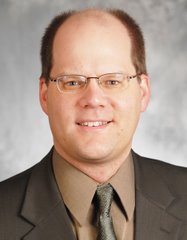Some misinformation about heating fuel tax
On Saturday during the House Tax Bill debate, there was a lot of hay made about my legislation to narrow the sales tax exemption on home heating fuel. But there was a lot of misinformation about it, with other members suggesting that all Minnesotans' heat would be taxed. Not true.
According to current law, home heating fuel during the months of November through April is exempt from the sales tax. My bill would narrow this exemption for the first 850 therms (or hundred cubic feet or ccf) for natural gas and for the first 5,750 kilowatt hours of electric heat. My concern is that there are a lot of big homes out there that consume a lot of non-renewable energy while we are cutting health care, education, and so on. We could help with the deficit while incentivizing conservation at the same time.
Two commissions of business leaders and financial experts have repeatedly told the legislature that we need to consider extending the sales tax to certain things that are currently exempt to avoid the wild volatility of our budget over many years.
In the FY2009-2010 biennium, if the state collected sales tax on all residential heating fuel users, the state would bring in $320,000,000. My legislation (see text below) would bring in $34,200,000, or only 10.68% of all taxable heat.
Liquid propane, propane gas, fuel oil, wood, coal, steam, and hot water heating fuels are not covered by this provision and would remain exempt. It only covers metered electric heat and natural gas, mostly because it is much easier to calculate and collect tax through our regulated utilities instead of 850 other energy vendors.
The legislation would help to stabilize volumes during peak times which holds prices down for everyone. 100% of natural gas and most of our electricity comes from fossil fuels, so we have an opportunity to smooth out or curb the use of finite natural resources.
Some of my colleagues are saying that folks in drafty houses will end up paying the tax. Well, if that is the case, there are more FREE weatherization services available due to the stimulus package through county community action programs (CAPS) than ever before, so Minnesotans in need will have resources available for sealing older homes and even getting some new furnaces and other appliances. So there are a lot of opportunities for avoiding the tax if indeed there would be people who exceed the tax-exempt threshold. (I do not think that there will be that many.)
Rep. Olin and I worked on an amendment to exempt people on low income heating assistance (LIHEAP) from the tax. I am also working on an amendment to exempt people who are behind on their bills (for something like job loss) and are covered by the Cold Weather Rule.
Here's the text of the legislation from HF2323, 3rd engrossment.
177.15 Sec. 28. Minnesota Statutes 2008, section 297A.67, subdivision 15, is amended to read:
177.16 Subd. 15. Residential heating fuels. (a) Residential heating fuels are exempt
177.17as follows:
177.18(1) all fuel oil, coal, wood, steam, hot water, propane gas, and L.P. gas sold to
177.19residential customers for residential use;
177.20(2) for the period encompassing the billing months of November, December,
177.21January, February, March, and April, the first 850 hundred cubic feet per dwelling unit of
177.22natural gas sold for residential use to customers who are metered and billed as residential
177.23users and who use natural gas for their primary source of residential heat; and
177.24(3) for the period encompassing the billing months of November, December,
177.25January, February, March, and April, the first 5,750 kilowatt-hours per dwelling unit of
177.26electricity sold for residential use to customers who are metered and billed as residential
177.27users and who use electricity for their primary source of residential heat.
177.28(b) Notwithstanding paragraph (a), residential heating fuel sold to a customer
177.29registered with their natural gas or electricity service provider and receiving assistance
177.30through a federal or state low-income home energy assistance program is exempt as
177.31follows:
177.32(1) for the billing months of November, December, January, February, March, and
177.33April, natural gas sold for residential use to customers who are metered and billed as
177.34residential users and who use natural gas for their primary source of residential heat; and
178.1(2) for the billing months of November, December, January, February, March, and
178.2April, electricity sold for residential use to customers who are metered and billed as
178.3residential customers and who use electricity for their primary source of residential heat.
178.4EFFECTIVE DATE.This section is effective for sales and purchases made after
178.5June 30, 2009.
I don't know if this provision will survive conference committee or not, but I offered the idea as one way to help with the deficit in a means-tested way. We'll see.
